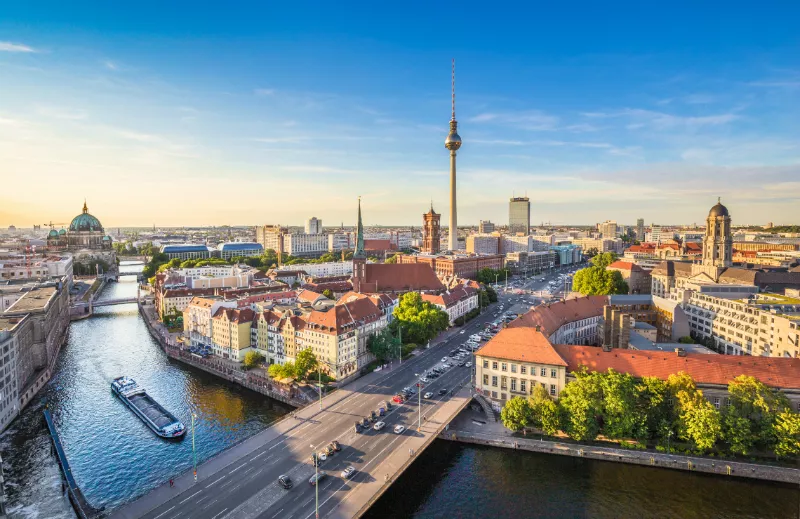The tradition of adult education in Europe: Germany

In 2019 several members of the European Association for Education of Adults (EAEA) are celebrating important dates in their history: this year is 175th anniversary of the establishment of the first Folk High School (FHS) in Denmark, the 50th anniversary of founding of AONTAS, our member from Ireland, and the 100th anniversary of German Volkshochschulen (VHS). To mark such important occasions, EAEA decided to delve into the history of non-formal adult education in Denmark, Ireland and Germany, and unveil what role it plays in these countries. We spoke with national experts who shared their knowledge and opinion on the state of non-formal learning.
Check out the interview about the adult education traditions in Ireland
Check out the interview about the adult education traditions in Denmark
EAEA trainee Aizhana Khasanova interviewed German expert Lisa Freigang about the tradition of adult education in Germany.
What is the history and ideology of the German Volkshochschulen (VHS)?
Lisa: In 1919 the constitution of the Weimar Republic was passed, and adult education then received a lot more value than before, as the constitution declared adult education a public responsibility. The VHS were mentioned directly in one of the articles in the constitution. So basically what we are celebrating this year is 100 years of adult education as a public responsibility, the duty of the state. At that time a 100 years ago, many adult education community centres were founded, although not all of the 900 VHS that exist in Germany were founded the same year. The role model of the Danish folk high schools played its part, of course, and some VHS were founded even earlier. What is also important in the context of our anniversary and the idea behind VHS is that at that time in Weimar Republic there was a big change. So VHS are also an expression of the time. Their task was to give clarity and community and to serve the people but also to serve democracy. The Weimar Republic was the time of disruption and change for some people, and VHS was supposed to help them find their place in society. The main idea is that learning starts with the learner and their needs and that the programmes are oriented towards what supports an individual and the society. VHS see themselves not just as learning sites, but also as meeting spaces, where people can come together and learn together, learn from each other and share ideas. What’s very important is that VHS are open to all, to people of different backgrounds, religions, political orientations, social statues. This also means that VHS are supposed to offer affordable education. VHS are not profit-oriented and don’t just depend on participants’ fees but also receive public funding.
How have VHS changed over time?
Lisa: Obviously, based on the history of Germany, a lot of things changed. For example, when we talk about the 100th anniversary it is important to mention that there was a time of the national socialists in between those 100 years. They basically eradicated VHS as such. They tried to bend the ideas to their political goals. And after World War 2, a lot of VHS were founded again or reopened. Obviously they developed differently in the East and West parts of Germany. The socialist education system in the East part focused a lot on vocational training and second chance education. And the VHS in the West tried to get back to what they were before the war. But if you look at VHS from 100 years ago and now, they still have a lot in common, especially in the ways they bring people together.
What do you think is the future of VHS?
Lisa: Well, one dominant topic for every adult education provider right now is digitalisation. It is important in the sense of making good offers to the groups that are in danger of being disadvantaged, e.g. the older people, unemployed people, but also on the internal organisational level. What can we as a federal association do to provide support for the organizational change of VHS? We developed, for example, an online learning environment, an we call it ‘VHS Cloud’, where each VHS can plan courses, but also network among each other, as well as with regional and federal associations. These developments are going to continue and will be important for the years to come. Something that I am personally interested, but has also become a topic of interest for my organisation, is education for sustainable development. Again, this includes the educational offers as such, but also organisational change. And the other thing that will never stop being important is social cohesion within Germany, but also on the European level.
How will VHS celebrate their anniversary this year?
Lisa: As not every VHS is turning 100 this year, we are planning the celebration in a way that would be interesting to all of them even if they don’t have an anniversary this year. In February, we organised a celebration in Frankfurt in Saint Paul’s Church where the president of the Federal constitutional court spoke. What did in September was very different from that. We suggested to all the VHS to participate in a ‘long night of VHS’. The VHS opened their doors to the public and planned a programme for the whole night with music, food and drinks, and also ‘tasting’ courses – little learning ‘bites’. Out of the 900 VHS in Germany there are now more than 400 participating in that. The motto for the event is ‘Live together, come together’. Social cohesion is something that’s very important right now in society and that was very important 100 years ago in the Weimar Republic as well, so the motto is supposed to draw attention to the importance of adult education for social cohesion in society.








Incomplete